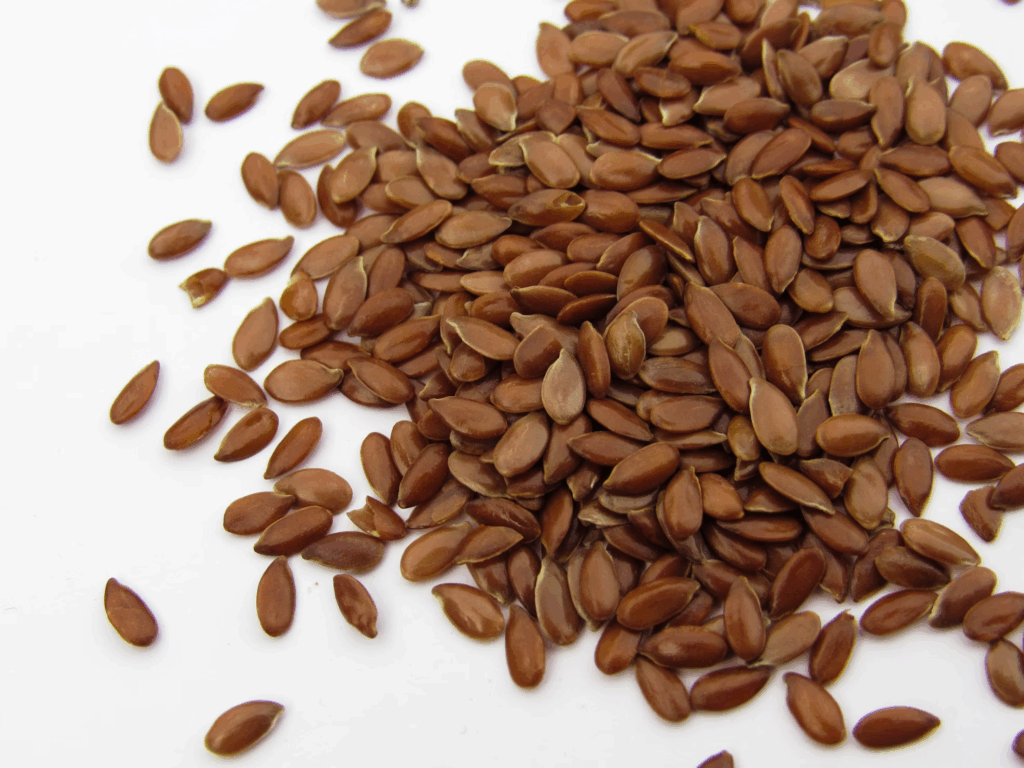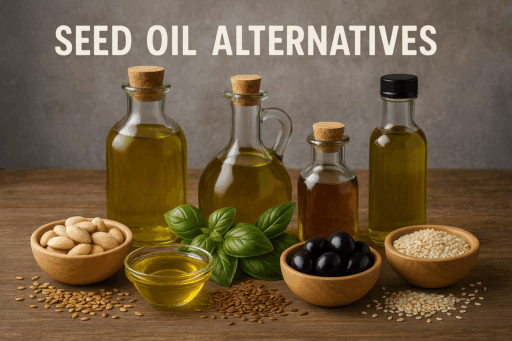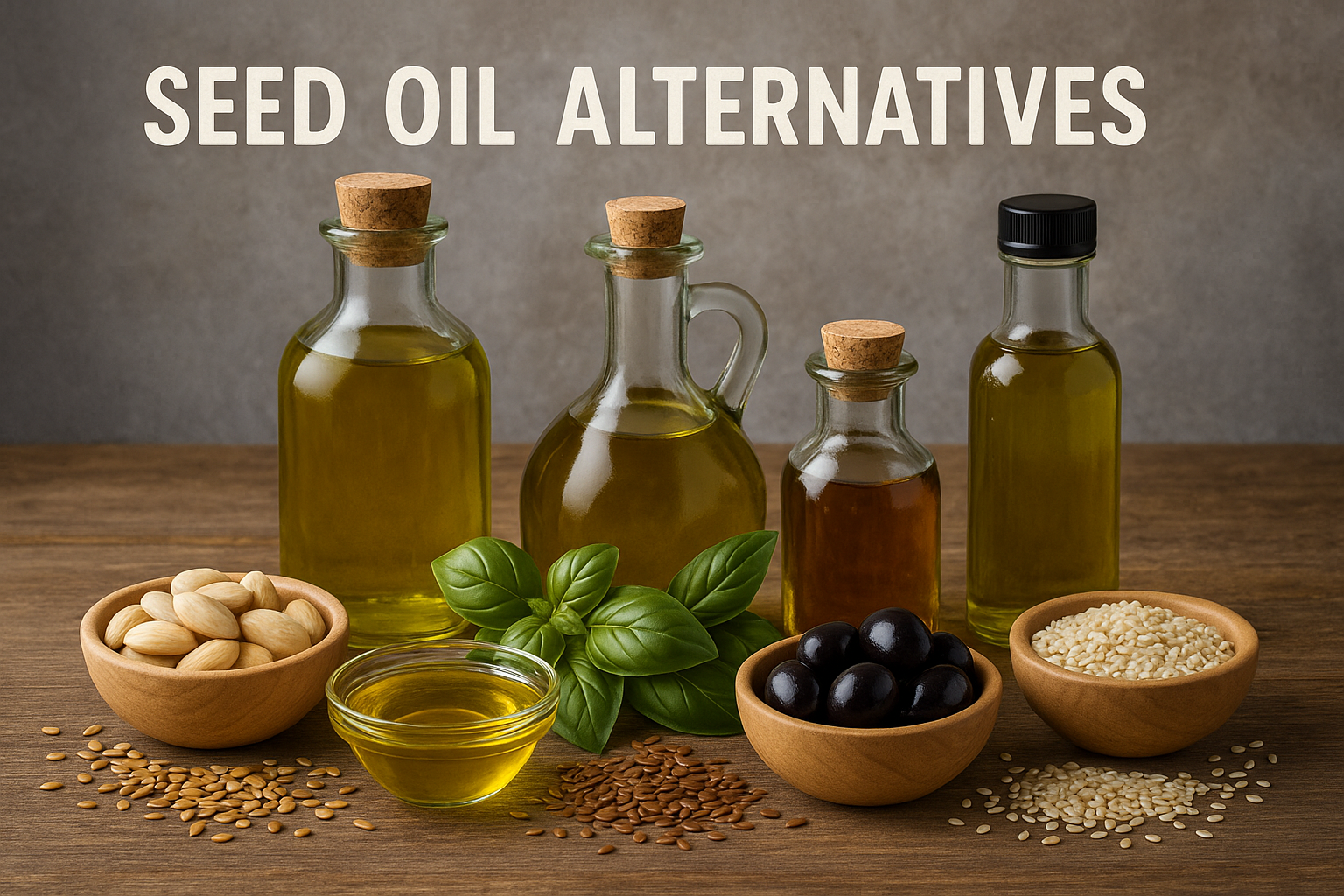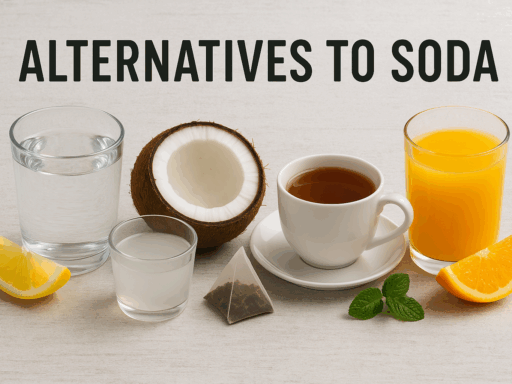Seed oils, such as sunflower oil, canola oil, and soybean oil, have long been staples in kitchens around the world. However, as consumers become more health-conscious and aware of the potential negative impacts of highly processed seed oils, the demand for seed oil alternatives is on the rise. These alternatives often provide healthier fats, better nutritional profiles, and a more sustainable option for cooking and baking.
In this article, we’ll explore the best seed oil alternatives, their health benefits, sustainability, applications, and challenges. Whether you’re looking to reduce inflammation, improve heart health, or simply make a more sustainable choice, there are plenty of alternatives to traditional seed oils that provide excellent flavor and performance in the kitchen.
Why Consider Seed Oil Alternatives?
Many of the common seed oils used today, such as sunflower oil, soybean oil, and canola oil, are high in omega-6 fatty acids, which can contribute to inflammation and other chronic health issues when consumed in excess. While omega-6 fatty acids are essential for health, the modern diet tends to be disproportionately high in these fats compared to omega-3s, leading to an imbalance that has been linked to various diseases.
In addition to their potential health risks, conventional seed oils are often highly processed and refined, stripping away beneficial nutrients and antioxidants. This makes them less healthy than alternatives that are less processed and richer in healthy fats.
Seed oil alternatives can provide better nutritional benefits, offering higher amounts of healthy monounsaturated and omega-3 fats, and can help reduce the environmental impact of food production.
Top Seed Oil Alternatives and Their Benefits

1. Olive Oil
Olive oil is one of the most widely recognized and healthiest cooking oils available. It’s made by pressing the fruit of the olive tree, and extra virgin olive oil (EVOO) is the least processed, offering the highest level of antioxidants.
- Applications: Olive oil is ideal for sautéing, grilling, roasting, and making salad dressings. It’s also used for drizzling over dishes and in Mediterranean-inspired recipes.
- Health Benefits: Olive oil is rich in monounsaturated fats, which promote heart health by lowering bad cholesterol levels. It is also packed with antioxidants, such as vitamin E and polyphenols, which help reduce inflammation and protect against oxidative stress.
Sustainability:
- Olive trees are drought-resistant, and olive oil production is relatively water-efficient compared to other oil crops. Many producers also focus on sustainable farming practices, including organic and fair-trade certifications.
Challenges:
- Smoke Point: Olive oil, especially extra virgin olive oil, has a lower smoke point (around 375°F/190°C) compared to seed oils, so it is less suitable for high-heat frying or deep-frying.
- Price: High-quality olive oil, particularly extra virgin olive oil, can be expensive.

2. Avocado Oil
Avocado oil is made by pressing the flesh of ripe avocados, and it is known for its mild flavor, versatility, and high smoke point, making it an excellent choice for high-heat cooking.
- Applications: Avocado oil is great for frying, grilling, sautéing, and baking. It can also be used in salad dressings and drizzled over roasted vegetables.
- Health Benefits: Avocado oil is rich in monounsaturated fats, which help reduce bad cholesterol levels and improve heart health. It also contains vitamin E and antioxidants, which promote skin health and reduce inflammation.
Sustainability:
- While avocado farming can be resource-intensive, particularly in water-scarce regions, avocado trees are relatively resilient to climate change and require less water than other oil crops, such as almonds.
Challenges:
- Cost: Avocado oil tends to be more expensive than other cooking oils due to the labor-intensive harvesting process.
- Flavor: While mild, avocado oil’s taste may not suit all types of cuisine, particularly in more delicate or neutral-flavored dishes.

3. Coconut Oil
Coconut oil is a tropical oil made from the meat of mature coconuts. It’s solid at room temperature and has a rich, creamy texture. While it is high in saturated fats, it is made up of medium-chain triglycerides (MCTs), which have been shown to provide various health benefits.
- Applications: Coconut oil is perfect for high-heat cooking, baking, and frying. It’s also used in vegan recipes as a substitute for butter.
- Health Benefits: Coconut oil is rich in MCTs, which may help with weight management and provide an energy boost. It is also known for its antimicrobial properties and can support gut health and immunity.
Sustainability:
- Coconut oil is produced from coconut trees, which require minimal water and can thrive in tropical climates. However, concerns have been raised about the environmental impact of large-scale coconut farming, particularly deforestation in some regions.
Challenges:
- Saturated Fat Content: Coconut oil is high in saturated fat, which has raised concerns about its impact on heart health. It is best consumed in moderation.
- Flavor: Coconut oil has a distinct coconut flavor, which may not be suitable for all dishes, especially those where a neutral oil is preferred.

4. Flaxseed Oil
Flaxseed oil is made from the seeds of the flax plant, and it is known for being one of the best plant-based sources of omega-3 fatty acids, specifically alpha-linolenic acid (ALA).
- Applications: Flaxseed oil is best used in cold dishes like salad dressings, smoothies, or drizzled over cooked vegetables. It is not recommended for high-heat cooking due to its low smoke point.
- Health Benefits: Flaxseed oil is rich in omega-3s, which are known to reduce inflammation, improve heart health, and support brain function. It is also a good source of lignans, which have antioxidant properties.
Sustainability:
- Flaxseed is a low-impact crop that requires minimal water and pesticides. It is grown in temperate regions and is more environmentally friendly than some other oil crops.
Challenges:
- Low Smoke Point: Flaxseed oil has a low smoke point, so it’s unsuitable for cooking at high temperatures. It’s best used in raw applications.
- Taste: The nutty flavor of flaxseed oil may not appeal to everyone, especially in certain dishes where a neutral flavor is needed.

5. Hemp Seed Oil
Hemp seed oil is derived from the seeds of the hemp plant. Unlike CBD oil, which is extracted from the flowers, hemp seed oil is rich in essential fatty acids, vitamins, and antioxidants.
- Applications: Hemp seed oil is often used in salad dressings, smoothies, or drizzled over cooked dishes. It can also be used in skincare products due to its nourishing properties.
- Health Benefits: Hemp seed oil is an excellent source of omega-3 and omega-6 fatty acids in a ratio that promotes optimal heart and brain health. It is also rich in gamma-linolenic acid (GLA), which has anti-inflammatory properties.
Sustainability:
- Hemp is a highly sustainable crop because it requires minimal water and pesticides. It is also a fast-growing plant that helps improve soil health.
Challenges:
- Taste: The earthy, nutty flavor of hemp seed oil may not be suitable for all dishes, particularly if a neutral-tasting oil is desired.
- Availability: While hemp seed oil is growing in popularity, it may not be as widely available in all regions or stores as other oils like olive oil or coconut oil.
Sustainability of Seed Oil Alternatives
When comparing seed oil alternatives to traditional oils, such as vegetable oil or palm oil, it’s clear that many of these options are more sustainable:
- Olive oil and avocado oil are both produced from trees that have long lifespans and require fewer resources compared to annual crops like soy or sunflower.
- Flaxseed oil and hemp seed oil are both plant-based oils that have a lower environmental impact, requiring fewer pesticides and less water than many other oil crops.
- Coconut oil, while environmentally friendly when produced sustainably, can have a significant impact when it comes to large-scale monocropping and deforestation.
Opting for organic, fair-trade, and sustainably farmed versions of these oils can further minimize their environmental impact.
Challenges of Adopting Seed Oil Alternatives
While seed oil alternatives offer numerous health and environmental benefits, there are challenges to their widespread adoption:
- Taste Preferences: Some people may prefer the flavor of traditional oils like sunflower oil or soybean oil, which are more neutral in taste. Alternatives like flaxseed oil or hemp seed oil have distinct flavors that may not appeal to everyone.
- Cost: Many alternative oils, especially avocado oil and olive oil, tend to be more expensive than conventional seed oils, which can be a barrier for budget-conscious consumers.
- Smoke Point: Some seed oil alternatives, such as flaxseed oil, have low smoke points, making them unsuitable for high-heat cooking methods like deep-frying. This limits their versatility in the kitchen.
Switching to seed oil alternatives can provide significant health and environmental benefits. From olive oil and avocado oil to flaxseed oil and hemp seed oil, these oils offer healthier fats, more sustainable sourcing practices, and a variety of unique flavors that can enhance your cooking.
While there are challenges related to taste preferences, cost, and smoke points, the growing demand for sustainable and healthier cooking options means that these alternatives will continue to improve in taste, availability, and affordability. By making the switch to seed oil alternatives, you can improve your diet, reduce your environmental impact, and enjoy the benefits of cooking with better fats.






